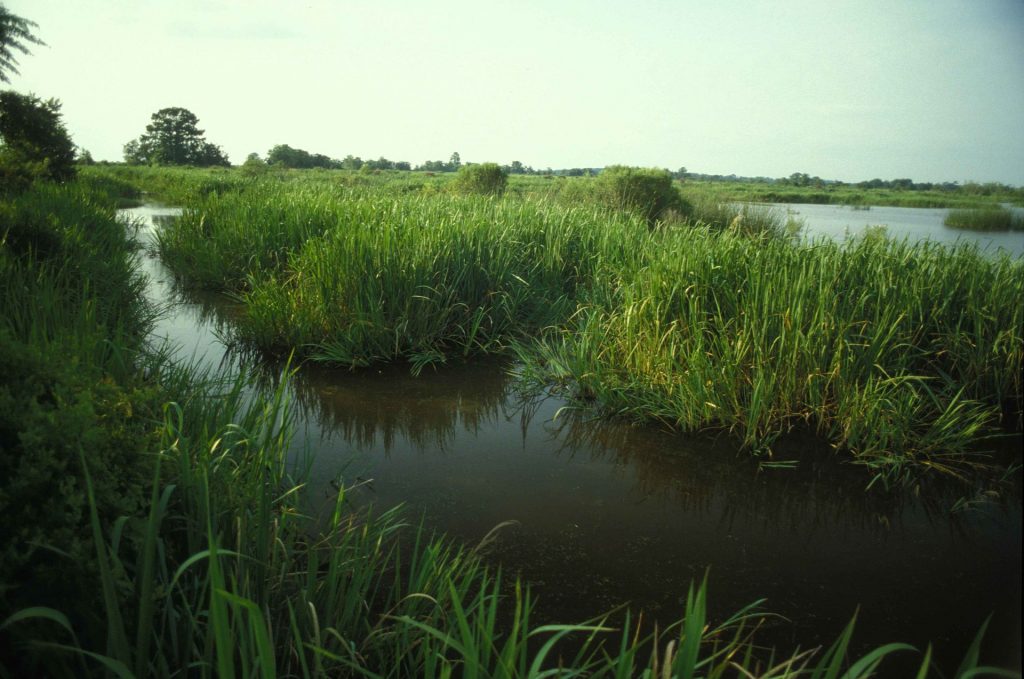Stetson Law’s Institute for Biodiversity Law and Policy files amici curiae brief to halt new rule that would limit Clean Water Act protections
Hearing scheduled today on motion for temporary injunction to proposed Navigable Waters Protection Rule

A new amici curiae (friend of the court) brief written on behalf of aquatic scientific organizations by the Institute for Biodiversity Law and Policy at Stetson University College of Law lends support to 17 states and the District of Columbia seeking a preliminary injunction to halt the Trump administration’s attempt to limit Clean Water Act (CWA) protections.
A hearing on the motion for preliminary injunction in the case, State of California et al. v Wheeler et al., will be held in the U.S. District Court for the Northern District of California on Thursday, June 18, 2020, at 1:30 p.m. (PDT) and is available for public viewing via Zoom (see the link and meeting information below).
Background
Under federal law, the CWA prohibits discharges of pollutants from point sources to “navigable waters,” unless permitted by either the U.S. Environmental Protection Agency (EPA) or the U.S. Army Corps of Engineers (or a state with an approved program). In April, the federal agencies published the Navigable Waters Protection Rule, which more narrowly defines which waters constitute navigable waters—and thereby considerably restrict the wetlands and other waters that are federally protected under the CWA.
States from across the country, including California, New York, and Wisconsin, filed a lawsuit and have since petitioned to temporarily block the new rule from taking effect. Stetson’s Royal Gardner, professor and director of the Institute for Biodiversity Law and Policy, and Erin Okuno, assistant director of the institute, co-authored with a team of attorneys an amici brief in support of the injunction. They pointed out that utilizing science is critical to achieving goals of the CWA, but the EPA and Army Corps disregarded the available science when crafting the new rule.
Issues
“Although the Agencies concede the importance of science, they largely ignored the scientific understanding of how streams and wetlands contribute to the chemical, physical, and biological integrity of downstream waters,” they wrote in the brief.
“The Agencies acted arbitrarily and capriciously by failing to inform themselves—and the public—about the 2020 Rule’s significant negative effects. The 2020 Rule’s reduction of Clean Water Act protection threatens irreparable harm to every American who benefits from and relies on the integrity of the Nation’s waters.”
The only other amicus brief in the case is from New York University’s Institute for Policy Integrity. It focuses on the agencies’ disregard of the economic consequences of their actions and notes they used an economic analysis “to obscure the rule’s anticipated harms” and “misrepresent environmental costs and compliance cost-savings.”
View court proceedings
Members of the public and press can click the link or use the information below to view or listen to the court proceedings via Zoom or telephone. Gardner said the judge may issue a ruling on the motion before June 22, the day when the new rule is scheduled to go into effect.
Zoom information
https://cand-uscourts.zoomgov.com/j/1611890679?pwd=bWZON2ZPSU1tQWw4L3AzYlZmOUN0dz09
Meeting ID: 161 189 0679
Password: 537023
Dial by your location
+1 929 205 6099 US (New York)
+1 253 215 8782 US
+1 301 715 8592 US
+1 312 626 6799 US (Chicago)
+1 346 248 7799 US (Houston)
+1 669 900 6833 US (San Jose)
Find your local number: https://zoom.us/u/ac4JkPfcjo
Per the Court order, PLEASE NOTE: Persons granted access to court proceedings held by telephone or videoconference are reminded that photographing, recording, and rebroadcasting of court proceedings, including screenshots or other visual copying of a hearing, is absolutely prohibited. See General Order 58 at Paragraph III.
Post date: June 18, 2020
Media contact: Kate Bradshaw
[email protected] | 727-430-1580